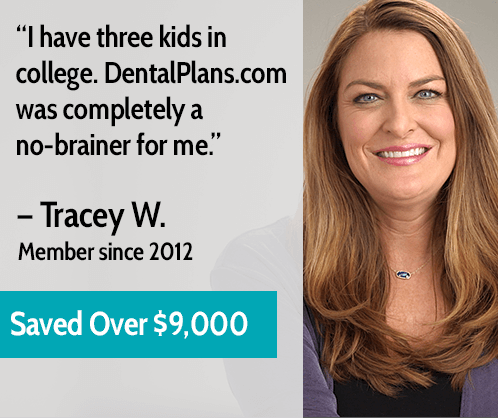
Unlock Your Future: The Fear of Uncertainty and the Desire for Security in Self-Employed Insurance Plans for 2025
“The greatest wealth is health.” – Virgil
In today’s fast-paced world, individuals who are self-employed or run small businesses face unique challenges, especially when it comes to securing health coverage. The right health insurance not only ensures better health outcomes but also provides crucial financial stability and peace of mind. As rising health insurance premiums in the ACA marketplace pose ongoing concerns, exploring self employed insurance plans can be a practical solution.
Free Marketplace Research
Avoid choosing the wrong plan. Allow us to research all your options based on your needs and budget.
Fill out the form bellow, and we will send you our best recommendations straight to your inbox!
Understanding the Rising Health Insurance Premiums in the ACA Marketplace
The Impact of ACA on Health Insurance Costs
Since the Affordable Care Act (ACA) was implemented, many Americans have witnessed a significant shift in their health insurance landscape. However, rising health insurance premiums within the ACA marketplace remain a pressing concern, especially for those who do not qualify for subsidies. For the self-employed, these increasing costs can become a financial burden, complicating their ability to meet healthcare needs while running their businesses. By opting for self employed insurance plans, these individuals can find more affordable alternatives in the private sector, ultimately providing better coverage tailored to their specific needs.
Self Employed Insurance Plans: A Smart Solution
Self employed insurance plans offer innovative solutions for individuals seeking health coverage without the financial strain associated with ACA plans. These private health insurance options can include a variety of premium structures, deductibles, and out-of-pocket expenses. This flexibility allows self-employed individuals to customize their health insurance in a way that suits their lifestyle and financial situation, making it a far more attractive alternative than the ACA marketplace, especially for skilled workers, independent contractors, and small business owners.

Private Health Insurance: A Viable Alternative
Why Consider Private Insurance?
For many self-employed professionals, including lawyers, consultants, realtors, and digital marketers, private health insurance emerges as a viable alternative to ACA options. Unlike traditional health plans that often feature limited coverage choices, private insurance offers a more comprehensive range of policy features, such as customizable premiums and deductibles tailored to fit individual needs. The ability to choose insurance providers allows self-employed individuals to find coverage that best aligns with their healthcare requirements, thus improving their overall satisfaction and financial well-being.
The Diverse Options for Self Employed Insurance Plans
Another appealing aspect of private health insurance is its wide array of options. Self employed insurance plans can cater to a broad spectrum of professions and industries—from gig workers like beauticians and electricians to full-time freelancers and tech entrepreneurs. With so many possibilities available, self-employed individuals have considerable freedom to select policies that resonate with their specific healthcare needs and can even adjust parameters over time as their business evolves or personal circumstances change.

Flexible and Customizable Features of Private Insurance
Tailoring Coverage to Your Needs
One of the hallmark advantages of self employed insurance plans is their flexibility. Self-employed individuals can fine-tune the various aspects of their health insurance, including premiums, deductibles, copayments, and out-of-pocket maximums. This customization allows them to create a policy that minimizes what they spend on premiums while maximizing their coverage benefits. As a result, they can better manage their healthcare expenses over time, leading to enhanced financial security and peace of mind.
Long-Term Financial Planning
Moreover, the customizable features of private insurance help self-employed individuals mitigate healthcare costs in the long run. Lowering premiums and out-of-pocket maximums can lead to significant savings over time, which can be redirected into the business or personal savings. This structure not only supports healthier living but also allows for more conscientious financial planning—factors that are paramount for anyone running their own business.
Get a hussle-free consultation
The Financial Impact of Mitigating Healthcare Costs
A Stronger Business Foundation
By effectively managing healthcare costs through self employed insurance plans, small business owners can build a stronger foundation for their enterprises. The stability provided by affordable health coverage allows entrepreneurs to focus on growing their businesses rather than worrying about financial setbacks caused by unexpected medical expenses. This peace of mind fosters creativity and productivity essential for success.
Improving Overall Well-Being
In addition to facilitating financial planning, securing the right health coverage significantly enhances overall well-being. Entrepreneurs can prioritize their health without the stress of overwhelming expenditures, leading to better health outcomes. By maintaining a healthy balance between work and personal health, self-employed individuals can ensure long-term success for themselves and their families.

Choosing the Right Health Insurance Plan
Investing in Your Health and Future
Understanding the available self employed insurance plans can be crucial for anyone working independently. The investment in suitable health insurance not only has immediate benefits but also holds long-term implications on financial security and health outcomes. It gives self-employed individuals and small business owners the ability to make informed choices that echo their values and professional aspirations.
Mitigating Risks While Maximizing Benefits
Selecting the right self employed insurance plans goes beyond mere compliance; it is about strategically mitigating risks while maximizing benefits. A well-chosen plan can offer coverage for essential health services while providing cost-saving opportunities on preventive care and regular checkups. For self-employed individuals facing a variety of risks, securing an effective insurance plan can make all the difference.

The Path to Financial Stability
The Role of a Licensed Health Insurance Expert
To navigate the complex landscape of self employed insurance plans, consulting a licensed health insurance expert is invaluable. With their guidance, self-employed individuals can conduct personalized market research tailored to their specific needs. This assistance can save time, reduce costs, and prevent costly mistakes—empowering entrepreneurs to focus on their core business activities.
Taking the Next Step in Securing Health Coverage
Ultimately, ensuring that you have the right coverage is essential to fostering a good health and financial outlook. The steps to achieve this can feel overwhelming, but remember that effective help is available. Consulting with an expert sets you on the right path toward achieving comprehensive health coverage suited to your self-employed lifestyle.
In summary, choosing the right health insurance plan is not just a decision; it is a crucial step toward ensuring both health and financial security. Self employed insurance plans offer a range of benefits from flexibility to tailored options. Be sure to call or text (407) 588-0505 for immediate assistance in navigating your health insurance journey!
Frequently Asked Questions About Self Employed Insurance Plans
1. What are self employed insurance plans?
Self employed insurance plans are health insurance policies tailored for individuals who work for themselves or own small businesses. These plans offer flexibility in coverage options and can often be more affordable than traditional ACA options.
2. How do I find the right self employed insurance plan?
Finding the right plan involves assessing your healthcare needs, comparing different insurers, and consulting with a licensed health insurance expert who can provide personalized advice and options based on your situation.
3. What factors should I consider when choosing a self employed insurance plan?
Consider factors such as premiums, deductibles, out-of-pocket maximums, network providers, and any specific health services you require. Each of these can influence your overall healthcare costs and financial stability.
4. Are self employed insurance plans customizable?
Yes! One of the key benefits of self employed insurance plans is their flexibility. You can tailor various features, including coverage levels, premiums, and deductibles, to match your specific needs and budget.
5. Can self employed individuals get tax deductions for health insurance?
Yes, self-employed individuals can often deduct their health insurance premiums from their taxable income, providing significant tax savings and incentivizing them to secure appropriate health coverage.





